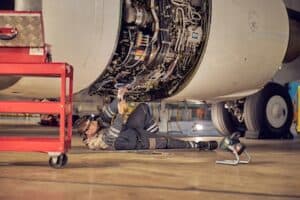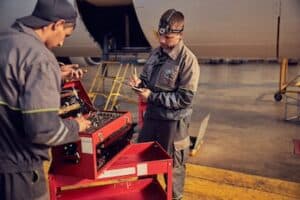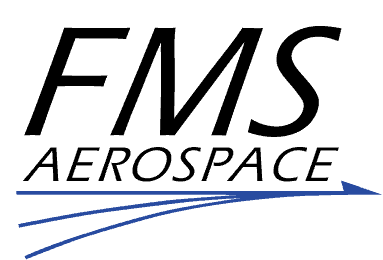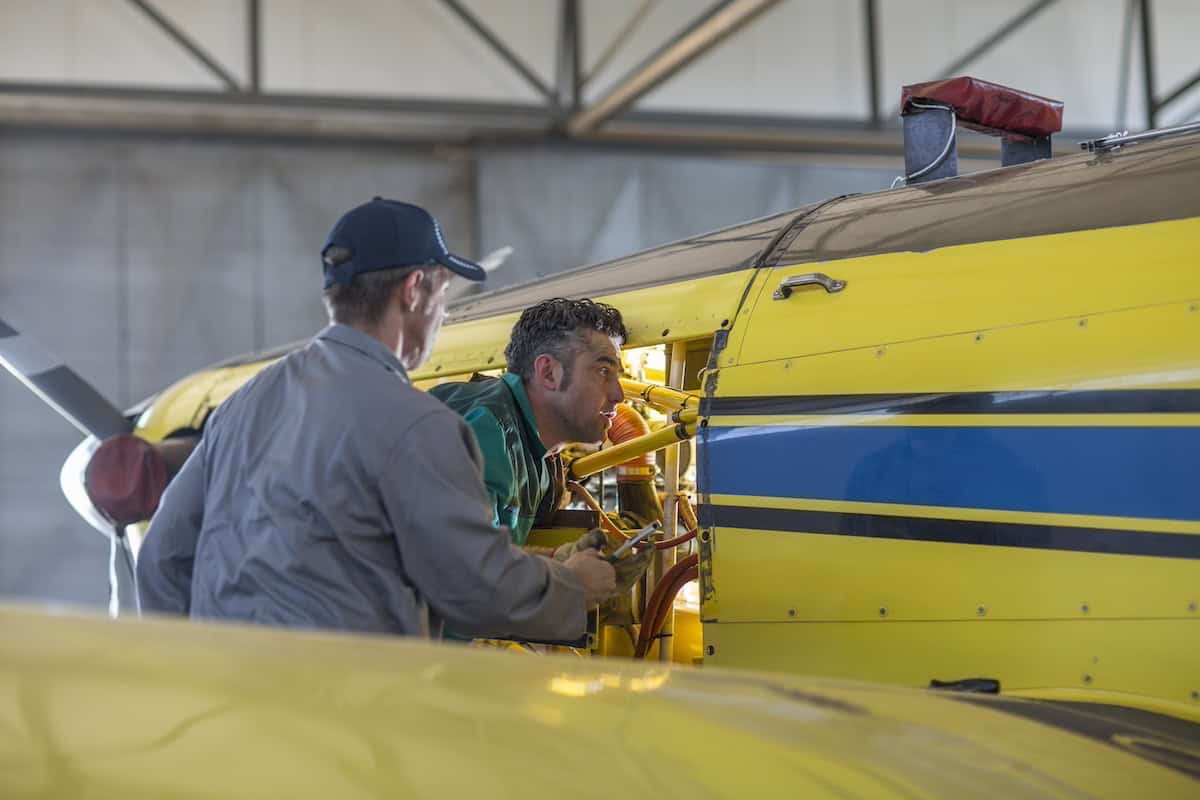Understanding Routine Aircraft Equipment Inspections
In the fast-paced and safety-critical world of aviation, regular inspections of aircraft equipment are more than routine checks – they are essential for ensuring the safety, performance, and longevity of both the aircraft and its components.
At FMS Aerospace, we understand the importance of maintaining the highest standards when it comes to equipment inspections, offering comprehensive solutions to keep aircraft operating at peak efficiency.
In this blog post, we’ll dive into the significance of regular aircraft equipment inspections and how they help mitigate risks, improve operational efficiency, and extend the life of aircraft systems.
Why Aircraft Equipment Inspections Are Crucial
The aviation industry operates under stringent safety regulations for good reason. Even the smallest failure of a component or system could have catastrophic consequences, jeopardizing the lives of passengers and crew.
Regular equipment inspections play a vital role in preventing these risks by identifying potential issues before they become serious problems.
Aircraft are composed of thousands of components, from engines and landing gear to avionics systems and electrical wiring. Each piece of equipment must function flawlessly to ensure the aircraft operates safely.
Inspections verify that these systems are in good working condition, preventing malfunctions that could lead to in-flight emergencies.

Enhancing Safety Through Routine Checks
Safety is the number one priority in aviation, and regular inspections are the first line of defense. Aircraft undergo various levels of inspections throughout their service life, ranging from daily pre-flight checks to more in-depth assessments like annual or scheduled maintenance checks.
Identifying Wear and Tear
One of the primary reasons for regular inspections is to identify wear and tear that naturally occurs with frequent use. Aircraft equipment is subjected to extreme conditions, including rapid changes in pressure, temperature, and weather.
Over time, these stressors can cause components to degrade, even if they were originally built to last. Regular inspections can catch this wear early, allowing for timely replacements or repairs before more significant damage occurs.
Preventing Catastrophic Failures
Unexpected equipment failure can result in severe safety risks. Regular inspections allow maintenance teams to detect small issues – such as cracks, leaks, or corrosion – before they escalate into larger problems that could cause critical failures in flight.
Preventive maintenance is far more cost-effective and safer than dealing with the aftermath of a failure during operations.
Ensuring Regulatory Compliance
The aviation industry is one of the most heavily regulated sectors in the world. Organizations like the Federal Aviation Administration (FAA) and the European Union Aviation Safety Agency (EASA) set strict guidelines for aircraft maintenance and inspection to ensure safety across the industry.
Regular aircraft equipment inspections are a core component of staying compliant with these regulations.
Failure to adhere to regulatory inspection schedules can result in penalties, grounding of aircraft, and, more importantly, unsafe flight conditions.
By conducting regular inspections, airlines and maintenance teams ensure their aircraft meet all required safety standards, avoiding costly fines and ensuring that their aircraft remain airworthy.
Optimizing Aircraft Performance and Efficiency
Beyond safety, regular equipment inspections also play a key role in maintaining optimal performance and efficiency for aircraft. Even minor issues with equipment can lead to reduced performance, increased fuel consumption, and higher operational costs.
Improving Fuel Efficiency
For example, small mechanical issues, such as a misaligned sensor or improperly functioning engine component, can cause an aircraft to use more fuel than necessary. Over time, this adds up to significant additional costs for airlines.
By addressing these minor issues through regular inspections, airlines can optimize their fuel consumption and improve overall efficiency.
Reducing Downtime
Regular equipment inspections also help reduce unscheduled downtime. If an aircraft experiences an unexpected mechanical failure, it could be out of service for extended periods, causing disruptions to flight schedules and lost revenue for airlines.
Routine checks help detect problems early, allowing maintenance teams to fix issues during scheduled downtime, and preventing unplanned outages.

FMS Aerospace: Leaders in Aircraft Equipment Inspections
At FMS Aerospace, we understand the vital role that regular inspections play in ensuring aircraft safety and performance.
Our comprehensive range of flight test and inspection solutions is designed to meet the highest industry standards, offering everything from routine equipment checks to specialized testing for complex systems.
We take pride in our meticulous approach to inspections, utilizing advanced technology and experienced personnel to identify potential issues early.
Our team is committed to helping airlines, military contractors, and aerospace companies maintain their fleets in peak condition, ensuring that their equipment remains compliant, safe, and efficient.
Prioritizing Safety with Aircraft Inspections
In the high-stakes world of aviation, regular aircraft equipment inspections are not optional – they are essential. These inspections help ensure the safety of passengers and crew, keep aircraft in compliance with regulatory standards, and optimize performance for airlines.
By investing in regular equipment inspections, airlines can avoid costly repairs, reduce downtime, and extend the life of their aircraft, all while maintaining the highest safety standards.
At FMS Aerospace, we are proud to support the aviation industry with top-tier inspection services that help our clients stay ahead of the curve. Contact us today to learn more about our inspection solutions and how we can help keep your fleet flying safely and efficiently.


